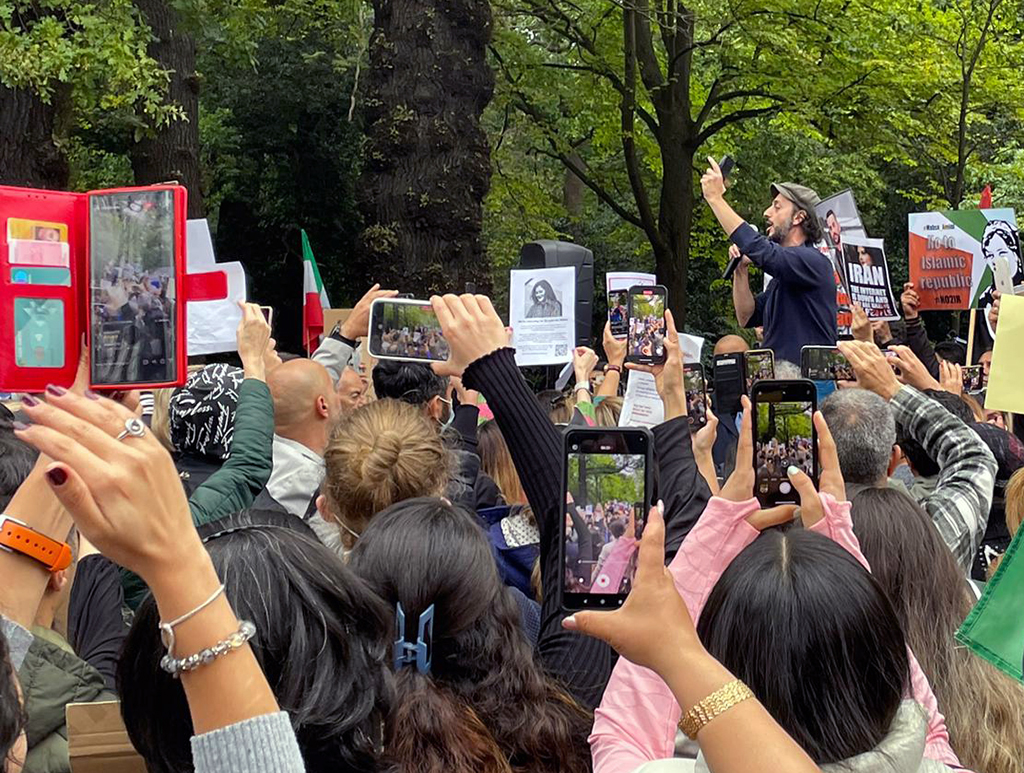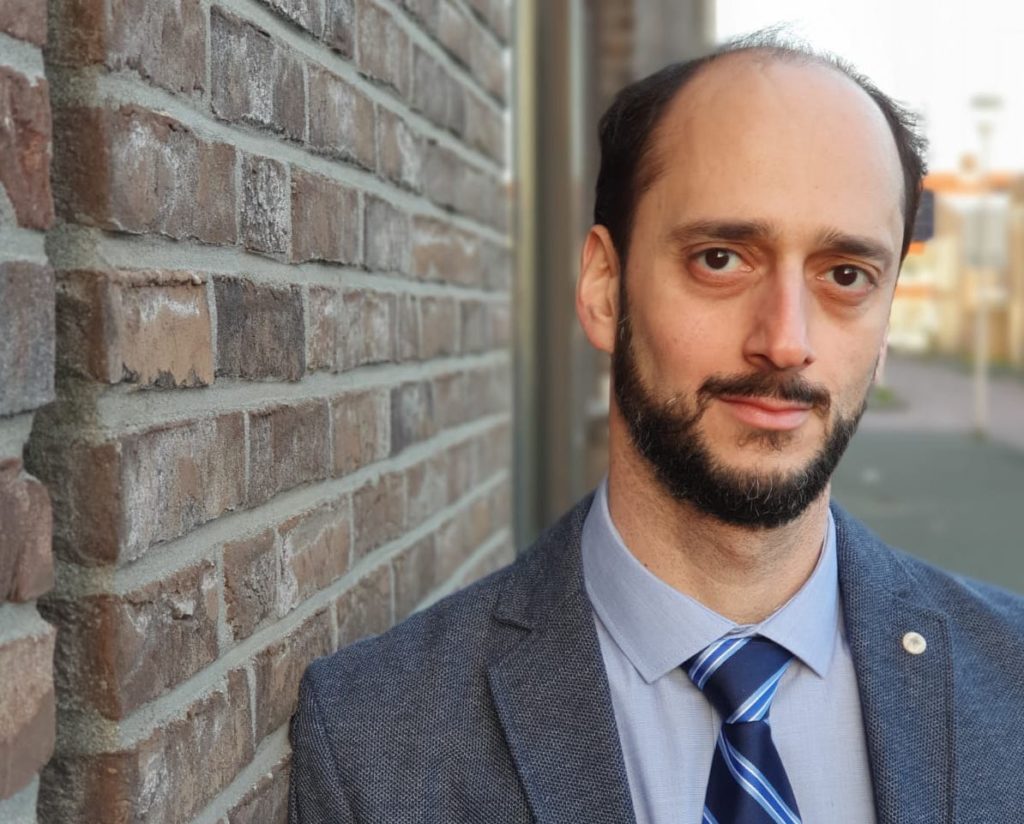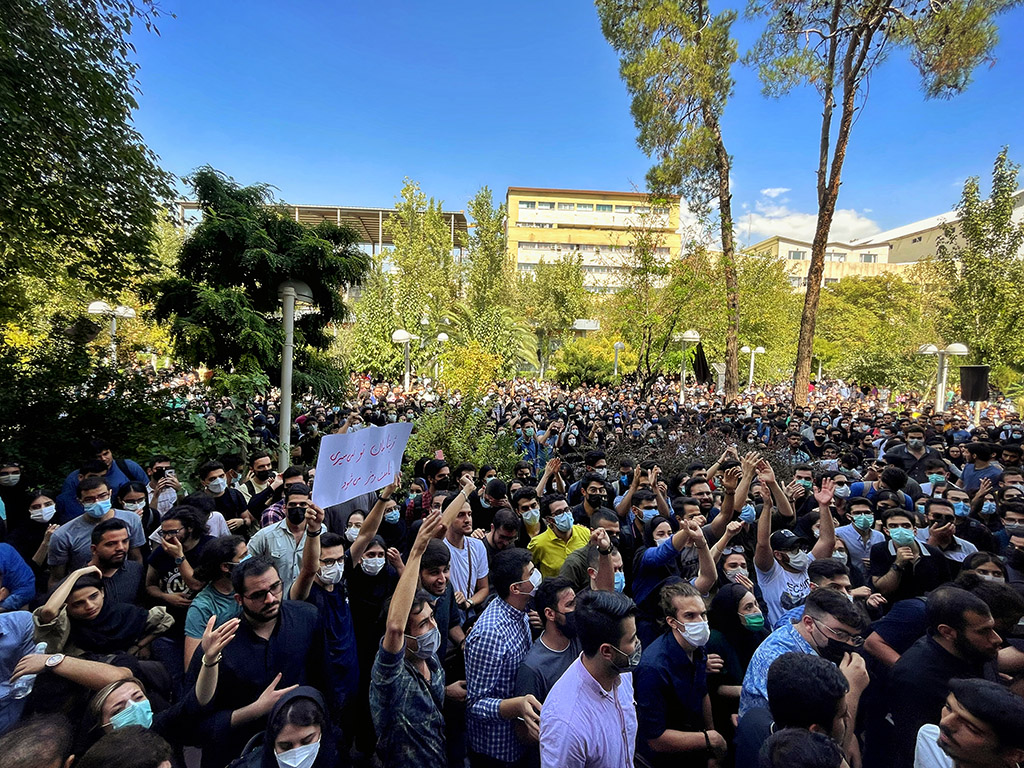Ammar Maleki: ‘Iranian people are fed up with the Islamic regime’
Demonstrations, burned headscarves, and small creative actions of resistance. The Iranian people are protesting on a massive scale against the Islamic regime. Ammar Maleki, assistant professor of Comparative Politics at Tilburg University, explains: “The vast majority of the Iranian people do not support the Islamic regime. It is time for the European Union to put diplomatic pressure on the Islamic regime!”

The death of a young woman in Iran caused protests across the country in recent months. Masha Amini died under suspicious circumstances after being arrested by the morality police for not wearing her headscarf the “right” way. The protesters attracted worldwide attention with their revolutionary slogan zan, zendegi, azadi (woman, life, freedom). Other slogans focused more against the regime: “An Islamic republic, we don’t want, we don’t want.” After weeks of resistance, the end of the protests seems far from imminent.
Opinion polls
The actions and demonstrations are in line with opinion polls published earlier by the GAMAAN Research Institute. These showed that a majority of Iranians disapprove of the mandatory wearing of headscarves and do not support the Islamic regime. “The surveys were distributed among Iranians through social media and communication channels, such as WhatsApp and Telegram. Iranians are very active on social media,” explained founder and director Ammar Maleki.
“To reach all walks of life, we distributed the survey in different types of social media groups. As a result, all kinds of people filled out the survey: male and female, young and old, city people and the rural population, university educated and less educated, and thus also people who support the regime and those who do not. This makes the survey representative and reliable,” says the researcher.

The results show that women, young people, and highly educated urban people are—entirely as expected—the groups most opposed to a mandatory headscarf. But that does not mean that men, people over 50, the less educated, and people in rural areas are necessarily in favor of a mandatory hijab.
Indeed, figures show that the majority of these groups also oppose a compulsory hijab. “It is incorrect to think that the male, old, rural population in Iran necessarily supports the regime,” Maleki explained. “It is true that the largest group of supporters of the regime live in rural areas (35.5%), but the majority of the rural population (58.5%) does not support the regime.”
‘The majority of the rural population does not support the regime’
Ammar Maleki
In addition, the 2020 religion survey shows a secular shift in Iran. While 90% of respondents reported being raised religiously and/or practicing religion, about half stated that they became non-religious during their lifetime.
The Iranian people persevere: with ongoing demonstrations and small creative acts of resistance, they continue to show their discontent. For example, images of men and women dancing at a university recently surfaced on social media. While jumping on the tables, they wave their headscarves in the air. Clergymen also have to suffer in these images. Their turbans—as the videos show—are regularly pulled off their heads.

Support from Europe
Maleki says it is time for the European Union to show its support for the Iranian people: “The massive protests in Iran confirm our opinion polls. The vast majority of the Iranian people do not support the Islamic regime. It is time for the European Union to exert diplomatic pressure on the Islamic regime!”
The European Union must also do this for its own sake, Maleki explained: “If the Iranian regime kills protesters on a massive scale—as they did in Syria to support Assad—new migration flows may be triggered. Given the current influx of refugees from Syria and Ukraine, that’s the last thing the European Union wants. By the way, Iranians don’t want to leave their country at all. They want freedom. So they need international support to prevent a tragedy. The West can put pressure on the regime so that, with the help of referendums and free elections, there will be a peaceful transition.”
Translated by Language Center, Riet Bettonviel






